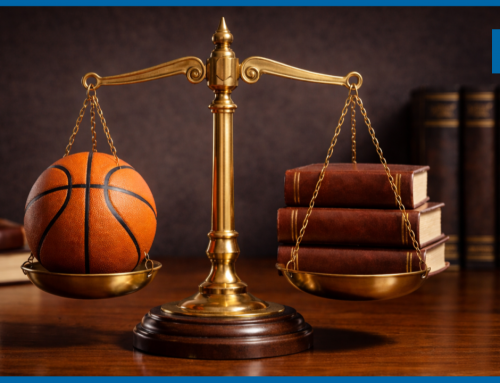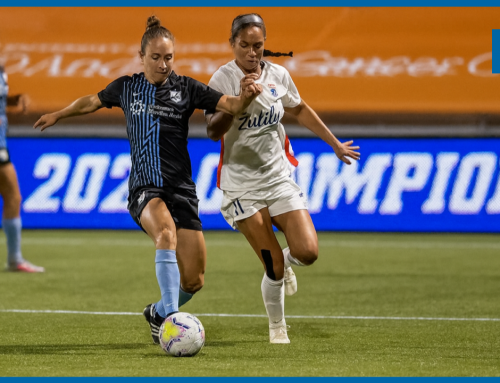Published and translated by the firm Winter – Dávila & Associés
Paris, 5 August 2024
Considered as the most important sporting event in the world, the Olympic Games bring with them not only a diversity of sporting disciplines and the participation of the best athletes in the world, but also the construction of a majestic infrastructure for the practice of sports, together with the renovation of stadiums, residences and spaces necessary to house thousands of competitors from five continents. To this extent, the use of mediation is advantageous in terms of time and execution, as explained above. For this, it suffices to have in front of us two primary antecedents to the current Paris 2024 Olympics. We are referring to London (2012) and Rio de Janeiro (2016).
For example, in London, dispute resolution clauses were established for contracts related to civil engineering, construction and maintenance projects, and the New Engineering Contract model was created for this purpose. This is to ensure faithful compliance with the minimum requirements of the International Olympic Committee.
YOU CAN ALSO READ: ROC VS IOC : Case analysis
Consequently, the aforementioned clause contained a two-stage process: (i) a body called Independent Dispute Avoidance Panel and (ii) Adjudication panel. In addition, there was an extraordinary appeal for judicial review. The first was composed of eleven experts in the field of construction and maintenance. Their participation was to find agile and flexible solutions to potential setbacks that may arise between the contractors and the Olympic authority, as the projects are developed. Therefore, the panel was constituted as a standing dispute board. The next step was the use of a dispute resolution body made up of panels of professionals in different areas, such as adjudicators. Thus, all those disputes not contemplated in the first step should be resolved in the second step. According to the information found, only two disputes were sent to the second tier, which strongly believes in the success of using a dispute board with an adjudicatory method.
The last avenue of review before the common jurisdictional body only in cases where the parties did not agree with the final decision issued by the members of the dispute board. For this purpose, the Technology and Construction Court was created. However, there is no information that any action has been initiated in this instance, which reinforces the idea of the success of the use of mediation.
In the case of Rio de Janeiro, a very similar arrangement was agreed upon. Since 1996, the Dispute Resolution Board Foundation (DRBF) has participated in the design of an institute to strengthen the prevention and resolution of disputes and has also offered and designed a training program for professionals.
Thus, first, a dispute board composed of three members, two of them chosen by the parties and the third by mutual agreement of the members already chosen (very similar to the formation of an Arbitral Tribunal) and a panel of chairs (dispute board chairs) responsible for chairing the three-member dispute boards already mentioned. It is worth mentioning that the members of both panels were chosen from a list of local experts.
Since they were for the exclusive use of the Olympic Games, the rules were designed following the principles of ConsensusDocs and a set of standardized documents created in 2007 by twenty organizations from the construction, civil engineering and architecture sectors.
It should also be noted that in Rio 2016, a new figure was created, the institutional program manager, whose mission was to coordinate all the activities of the dispute boards and resolve possible disputes.
In the case of Tokyo 2020, the issue became recurrent in the extreme of scandals related to the manipulation of contracts, bribes or discrepancies with the original design of the stadiums. However, there is no public information on the matter, and the use of the dispute board, it is only specified that those controversies related to the games were referred to the Committee for Adjustment of Construction Work Disputes.
Finally, in Paris 2024, the French model is new, as most of the infrastructures already existed before the Games and it simply remains to complement certain physical structures or adapt others, which in our opinion (despite the war in Ukraine) would not affect the use of existing facilities such as the Olympic Village, The cases of London 2012 and Rio 2016 leave a trail that will guide Parisians in the face of possible disputes that could affect the success of the competitions and, in particular, avoid cost overruns or delays in the normal sporting activities.
YOU CAN ALSO READ: Regarding the participation of transgender and intersex athletes
Conclusions
Sports mediation is presented as an alternative mechanism for conflict resolution in sports, offering several advantages compared to traditional methods such as arbitration or judicial processes. Among its main benefits, the following stand out:
1- Flexibility and Efficiency: Mediation offers a flexible and adaptable procedure to the specific needs of each case, allowing the parties involved to actively participate in the search for a mutually satisfactory solution. This translates into a more expeditious and efficient process compared to formal procedures, reducing costs and time invested.
2- Autonomy and Control of the Parties: Unlike other methods where the final decision rests with a third party, mediation empowers the parties involved to take control of the process and reach a consensual agreement. This fosters satisfaction and commitment to the solution reached, contributing to more lasting and collaborative relationships in the future.
3- Confidentiality and Image Protection: The confidential nature of mediation allows the parties to address their differences privately, avoiding public exposure of sensitive information that could damage their reputation or image. This is particularly beneficial in the sports field, where public image plays a crucial role.
4- Mediation is not limited to the application of legal rules or precedents, but allows the exploration of creative solutions adapted to the specific needs of each case. This increases the likelihood of reaching lasting agreements that truly satisfy the interests of the parties involved, and avoids numerous conflicts ending up in the hands of the natural judge.
Bibliography
- Architecture of the games (2013-2023) Paris 2024.
- Construction Europe (2021) Dispute boards can be an effective resolution for projects.
LEGAL NOTICE: This article has been prepared for informational purposes only. It is not a substitute for legal advice directed to particular circumstances. You should not take or refrain from taking any legal action based on the information contained without first seeking professional, individualized advice based on your own circumstances. The hiring of a lawyer is an important decision that should not be based solely on advertisements.
If you want advice related to the subject of the
article do not hesitate to contact us!
(email: contact@wdassocies.com)










Leave A Comment